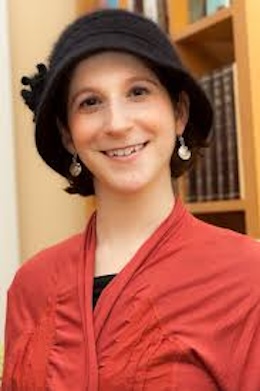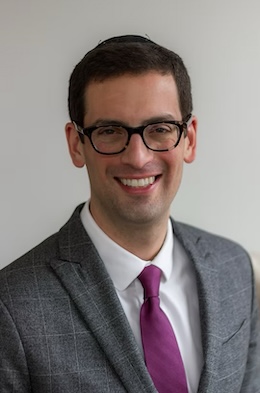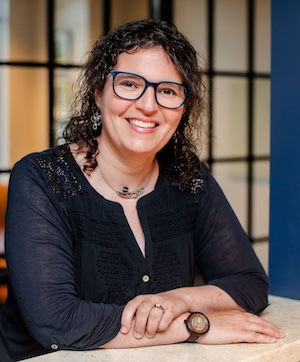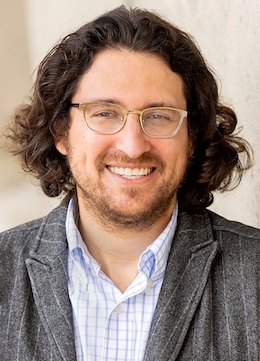
Our Story, Our Heritage: A Speaker Series with Wexner Scholars launched here in September. It features top Jewish educators from across North America who teach in the two-year Wexner Heritage Program, which focuses on Jewish learning and leadership training. While in Vancouver, the scholars give a talk that is open to the public, and also hold learning sessions with the local Wexner cohort, a diverse group of young local community members set to steer the community.
The speaker series began Sept. 22 with Yonatan Cohen, the rabbi of Congregation Beth Israel in Berkeley, Calif., and a senior fellow at the Shalom Hartman Institute. His talk, titled Our Texts in Tense Times, offered insights into Jewish texts that help frame recent experiences, particularly as the first anniversary of Oct. 7 approached.
Cohen spoke again on Nov. 17, giving a lecture called Agree to Disagree: The Seeds of Jewish Pluralism Revealed in Talmudic Debate. In it, using classic cases from the Talmud that elucidate the rabbinic approach to makhloket (debate or dispute), he considered how the rabbinic tradition distinguishes between “ultimate truth” and “public policy,” and how ancient texts might help guide the way one operates in a contemporary pluralistic Jewish community.
Next up on the Wexner speaker circuit is Sara Tillinger Wolkenfeld, chief learning officer at Sefaria, the free online library of Jewish texts, on Dec. 15. Her topic will investigate how ancient wisdom might offer insights into navigating the realities of social media. Wolkenfeld will return on Jan. 12 to examine tikkun olam, repair of the world, what it means and why it is important.
An alumna of the David Hartman Centre at the Hartman Institute of North America, Wolkenfeld also serves as scholar-in-residence at Ohev Sholom Congregation in Washington, DC. Her current research and writing focus is on the intersection between Jewish ethics and technological advancements.

Dr. David Shyovitz, a professor of history and Jewish studies at Northwestern University, will talk on Feb. 9 and March 2. His first lecture will look at Jews and Muslims from an historical perspective. His second asks, “Has there ever been a ‘Judeo-Christian’ tradition?” and digs into what the registration page for the talk describes as “an uneasy alliance.”
“Obviously, these are both very big and complex topics, so there is no way we will do either of them justice fully,” Shyovitz told the Independent. “But they are also topics about which many people have limited knowledge or dramatically oversimplified assumptions, so the goal will be to share some interesting ideas and sources and give participants a glimpse of the rich and nuanced history of inter-religious relations.”
Rabbi Dr. Tali Zelkowicz, director of curriculum and research at the Wexner Foundation, is slated to speak on March 16. She will revisit a debate in Jewish education.

“It has become a widely accepted fact that, across every age and stage, the field of Jewish education has split between the sub-fields of so-called ‘formal’ versus ‘informal’ (also known as ‘experiential’ education) or, alternatively, between ‘education’ versus ‘engagement,’” Zelkowicz said. “But how did we get to this default assumption, and is it helping us?”
By taking a closer look at assumptions about how learning works in Jewish life, Zelkowicz hopes to show how we are mired in what she sees as a “nonsensical debate” around which kind of learning setting is most needed or effective in Jewish life while avoiding the much more important question, what counts as great learning?
Devin E. Naar, a professor of history and Jewish studies at the University of Washington, winds up the series with lectures on March 30 and June 2. His first will study the formation of Sephardi Jewish communities in the Ottoman Empire.
“This lecture traces the trans-Mediterranean journey of the exiled Spanish Jews to the sultan’s realm and the cultural and political dynamics that shaped the communities they created and developed over the subsequent centuries. In short, it explores how the descendants of Spanish Jews eventually became Ottoman Jews, and the implications of those transformations today,” Naar told the Independent.

Naar’s second session will probe how the history of Middle East Jews might change the perception of Israel.
“This talk moves beyond polemics to delve into the history of the long-standing Jewish presence in the geography that now forms the state of Israel,” he said.
“The talk situates Jewish experiences within the broader framework of the Ottoman Empire (which ruled from 1517-1917) during which Ladino – not Hebrew, Arabic or Yiddish – largely remained the primary Jewish language of Jerusalem,” Naar continued. “The talk also introduces some of the key challenges that Sephardic and Mizrahi Jews confronted with the establishment of the state of Israel. What are the lingering effects of those transformations today?”
The Wexner Heritage Program has returned to Vancouver after a 24-year absence thanks to the support of the Diamond Foundation, the Jewish Federation of Greater Vancouver and alumni of the first local cohort.
“It was a transformative experience for me. Because of Wexner, I became a better Jewish leader,” said Jonathan Berkowitz, a member of the original cohort, and a former Vancouver Federation president and chair of Federation’s annual campaign. He was an instrumental figure in rebooting the program in Vancouver.
To register for any of the lectures, go to jewishvancouver.com/wexner-speaker-series.
Sam Margolis has written for the Globe and Mail, the National Post, UPI and MSNBC.
